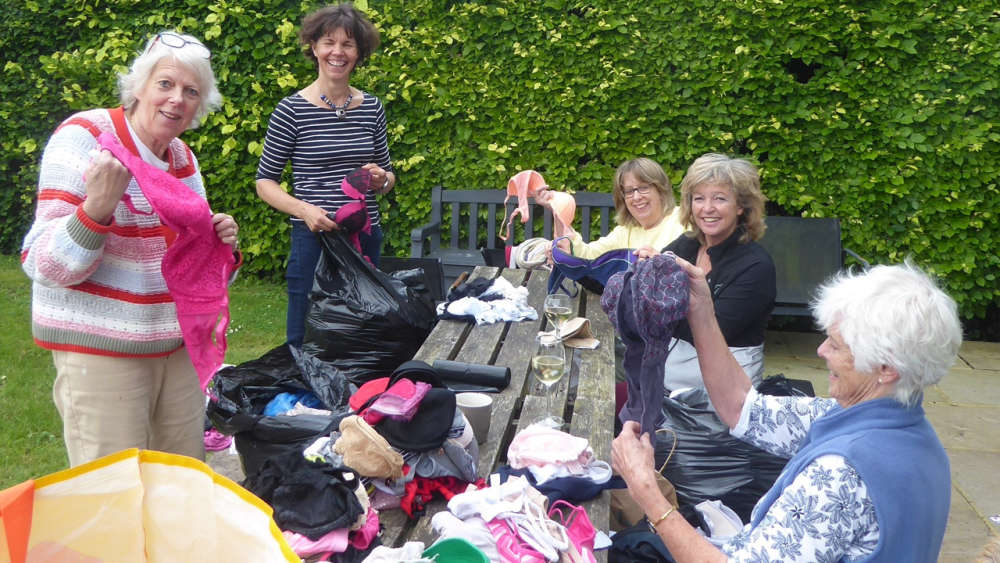To mark World Suicide Prevention Day (10th September), Salisbury & District Samaritans is encouraging people in the Salisbury area not to be afraid to talk about suicidal thoughts and feelings if they are worried about someone.
With the cost of living rising sharply, following an incredibly challenging few years, people may find themselves or loved ones feeling more worried or anxious, the UK’s leading suicide prevention charity is trying to reduce the stigma around suicide and urging people to look out for each other.
According to Samaritans, evidence* shows that asking someone if they’re suicidal doesn’t make things worse, it can protect people, as it provides a crucial opportunity to open up, express their feelings and seek help.
To help initiate conversations around suicidal thoughts, Samaritans has suggested asking direct questions including "Have you thought about ending your life?" and "Are you saying that you want to die?", as well as providing new tips and assets.
Paul, 42, describes how opening up about his suicidal thoughts helped him get the support he needed, “I had a lot of trauma and I never really dealt with the triggers from my childhood. It all came to a halt when I tried to take my own life on several occasions. I had gotten to the end of my own strength. I felt there was no way out – I couldn’t talk to anyone. I felt trapped. It was only when I began getting support that I started to accept that something wasn’t quite right.
"I’ve contacted Samaritans on numerous occasions. I would call at 2am with no hope. I can honestly say that those calls saved my life. Now, I find talking to my partner and people close to me helps. Before I wouldn’t because of the stigma, and I was scared to. But I do now, and I can be more honest and have a real conversation.”
Brian, a Listening Volunteer at Salisbury & District Samaritans, said, “If someone is feeling suicidal, they might be distant or distracted or feel disconnected. Asking someone directly if they’re having suicidal thoughts can give them the chance to tell you how they feel.
“You don’t have to be an expert, just being there to listen and showing you care can help. Letting them know they’re not a burden and there’s always someone they can turn to. Suicide can be seen as a taboo subject, so it is important people know it is OK to ask things like, “are you feeling suicidal?” as it helps the topic of suicide enter conversations more.”
Paul, Salisbury Branch Director at Salisbury & District Samaritans, said, “Life for a lot of people is tough right now, and no-one should feel ashamed about sharing what’s challenging them or feel like there’s no one they can turn to.
“It’s crucial that we all look out for each other and ask anyone you’re concerned about direct questions to allow them the time and space to express what they’re really going through. It could help save someone you love. Suicide can be preventable, and everyone has an important role to play.
“We engage with organisations in our area, including those in support and care roles, who would directly benefit from learning more about access to emotional support from the Samaritans, both for themselves and their clients.
"We talk about our listening service and how active listening can help alleviate stress and consider how to identify someone close to them who is struggling to cope. If your organisation would like to hear from Salisbury & District Samaritans, please contact us via outreach@samaritansofsalisbury.org ."
Keep up to date with Salisbury & District Samaritans here.
Anyone can contact Samaritans for emotional support, free, 24/7, 365 days a year, on 116 123, email jo@samaritans.org or visit www.samaritans.org.
* Dazzi, T., Gribble, R., Wessely, S., & Fear, N. (2014). Does asking about suicide and related behaviours induce suicidal ideation? What is the evidence? Psychological Medicine, 44(16), 3361-3363.
For the latest local news in Salisbury like Love Salisbury on Facebook or tune into Salisbury Radio on DAB or online.

 Witness appeal after police car rammed in Downton
Witness appeal after police car rammed in Downton
 Salisbury Soroptimists Bra collection back for 2025
Salisbury Soroptimists Bra collection back for 2025
 Eastbourne defeat leaves Salisbury just outside of relegation places
Eastbourne defeat leaves Salisbury just outside of relegation places
 Salisbury's final home league game of the season sees high-flying Eastbourne Borough at the Ray Mac
Salisbury's final home league game of the season sees high-flying Eastbourne Borough at the Ray Mac
 Appeal for witnesses following fire at Old Sarum airfield
Appeal for witnesses following fire at Old Sarum airfield
 Whites produce stunning comeback to draw away at Weymouth
Whites produce stunning comeback to draw away at Weymouth
 Investigation underway after fire destroys historic hangar and cafe
Investigation underway after fire destroys historic hangar and cafe
 Woman jailed for criminally damaging buildings in Salisbury
Woman jailed for criminally damaging buildings in Salisbury










